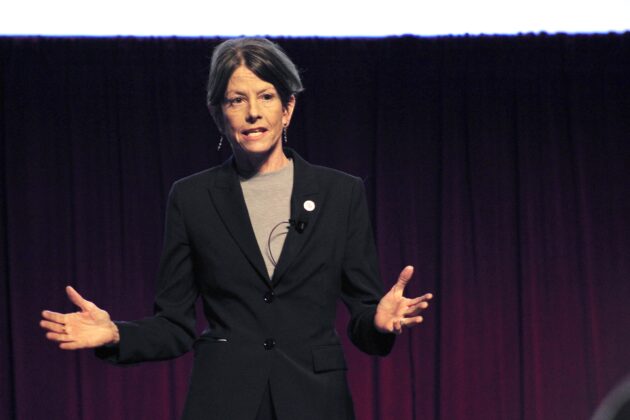
The Seattle City Council has postponed a vote on new minimum wage regulations aimed at food delivery drivers.
Sara Nelson, the council’s President who proposed the bill, announced the delay via a press statement shortly before the council meeting set for Tuesday, when a vote was anticipated.
The postponement comes as “amendments to the legislation have been introduced and councilmembers have asked for more time to consider these changes,” according to the statement.
This postponement is the latest development in the ongoing debate over establishing minimum pay standards for independent contractors who deliver food through apps like Uber Eats and DoorDash.
Seattle’s first minimum wage ordinance for this sector took effect in January, almost two years after its legislative approval.
Following its implementation, Uber and DoorDash both introduced a $5 fee for each order, which they described as a measure to mitigate the effects of the new rule. This led to a decrease in demand.
These companies also intensified their lobbying efforts at City Hall and their CEOs voiced opposition to the law, mentioning it on earnings calls in response to analysts’ questions.
Recently, Nelson unveiled a proposition to amend the existing law, suggesting a reduction in the drivers’ minimum wage from $26.40 to $19.97, among other adjustments.
This revised legislation was favorably received by the Seattle City Council’s governance, accountability, and economic development committee earlier this month.
The reactions among drivers, who have shared their thoughts at council meetings over several months, are varied. Some advocate for the maintenance of the current pay rate, attributing their ability to afford rent to the law. However, others report a substantial decrease in earnings due to reduced demand.
Similarly, the perspectives of restaurant owners vary, with some favoring the existing law, while others attribute declines in demand to losses in their businesses.
Cities like Seattle and New York City, which have also recently enacted minimum wage laws for delivery drivers, are now testing grounds for observing the effects of labor standards in the burgeoning food delivery sector. These platforms emphasize flexibility and independence for their workforce but face scrutiny regarding their impacts on workers and eateries.
The numerous “PayUp” policies recently approved in Seattle, including laws governing the deactivation of workers’ accounts and a 10-cent fee per order to support the implementation and enforcement of these policies, highlight its pioneering role. Additionally, Seattle has enacted a sick leave policy for delivery workers.




